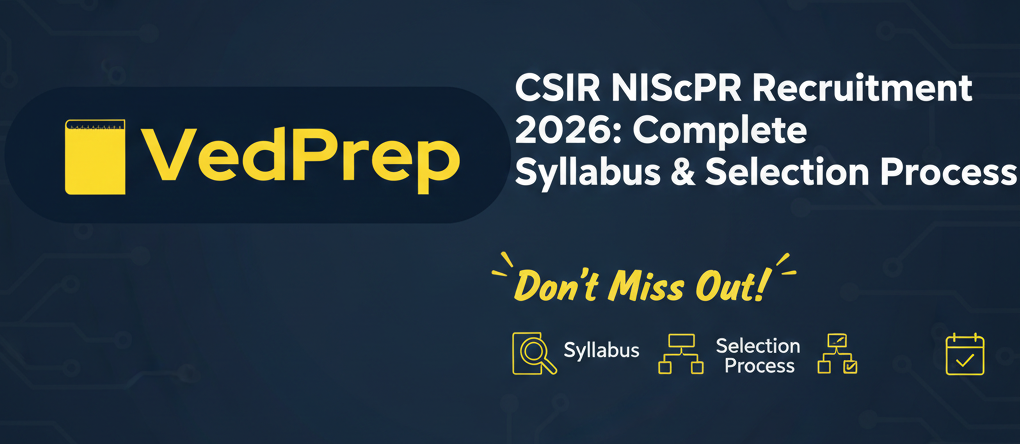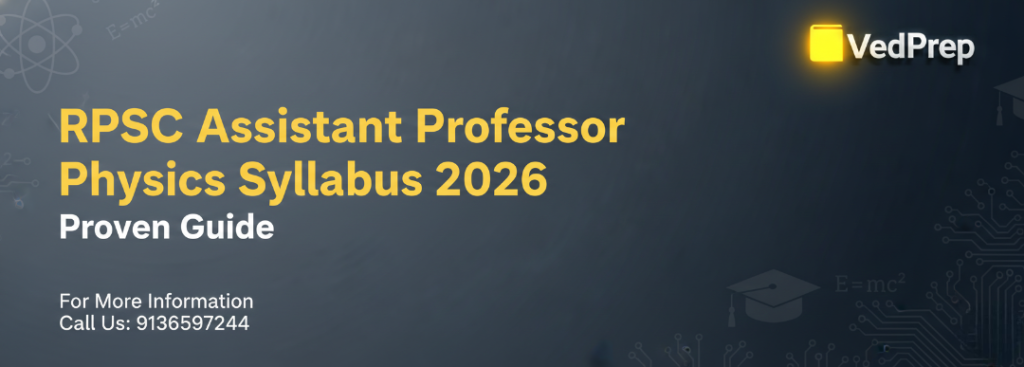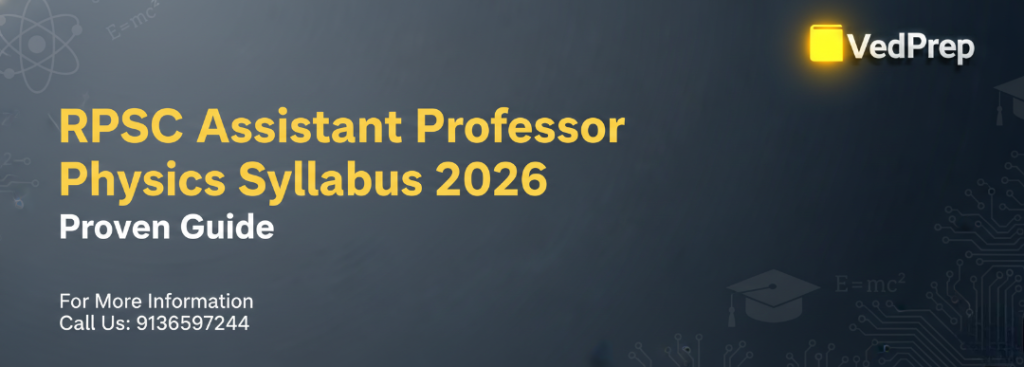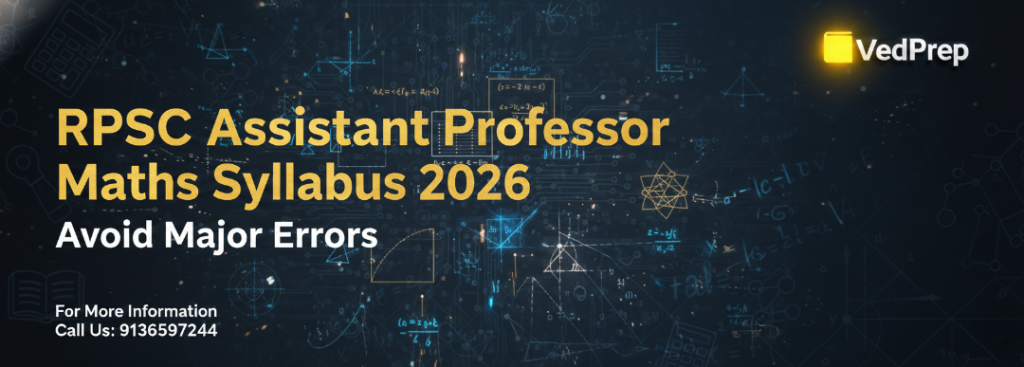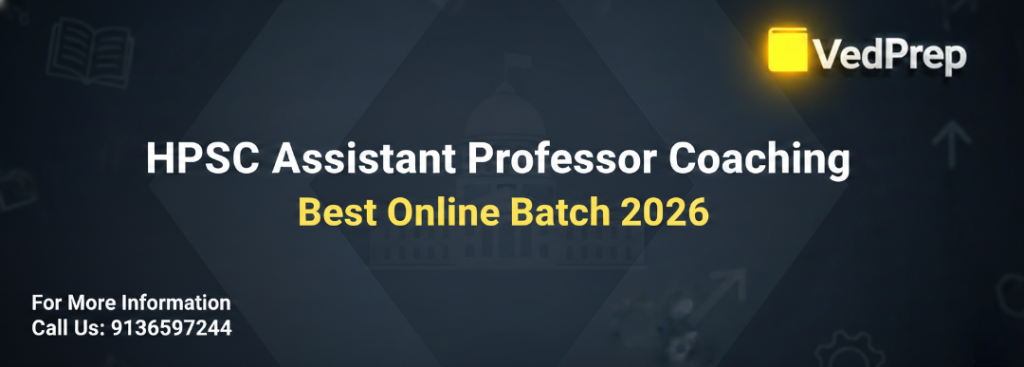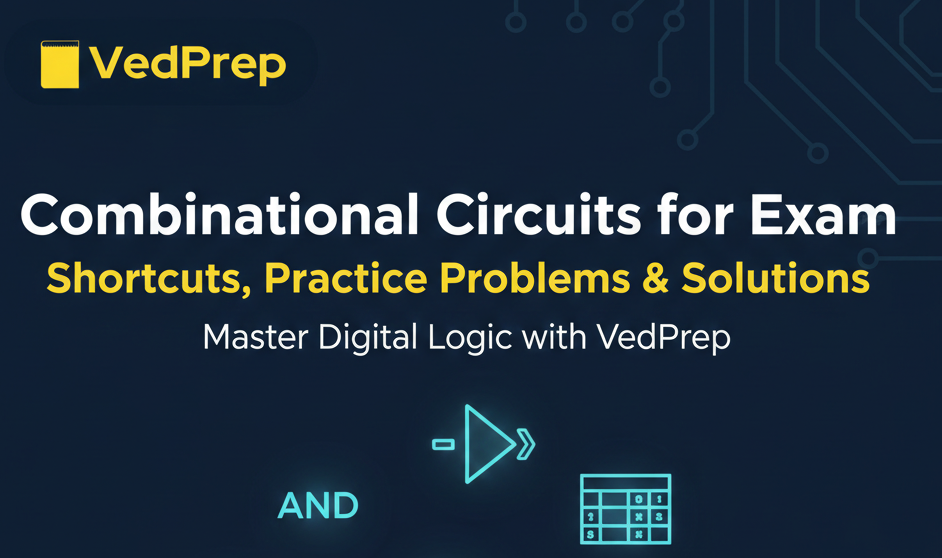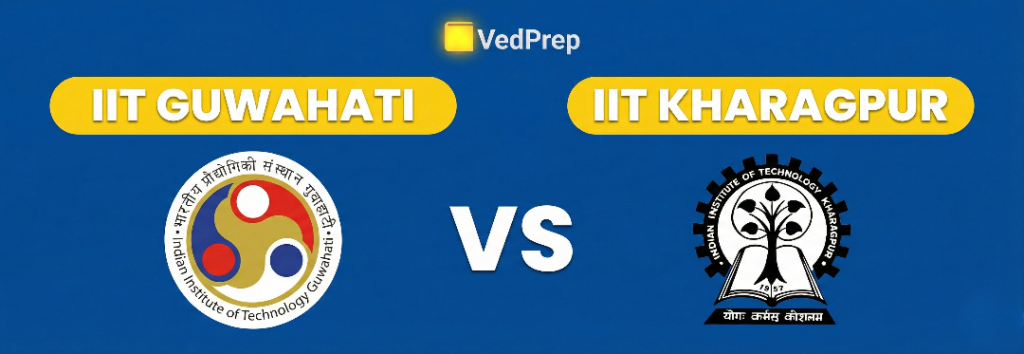IIT JAM, CUET PG, GATE & CSIR NET: Exam Structure, Eligibility, PYQs and Strategy
In India, higher education and research are defined by a set of national-level entrance examinations that evaluate knowledge, analytical skills, and academic potential. Among them, IIT JAM, CUET PG, GATE & CSIR NET are four of the most prominent exams that open pathways to postgraduate admissions, research fellowships, and teaching opportunities.
Each of these exams serves a distinct purpose. IIT JAM is primarily for MSc and PhD admissions in IITs and IISc. CUET PG acts as a gateway to central and state universities. GATE serves both as an admission test for higher studies and as a recruitment test for PSUs. CSIR NET determines eligibility for research fellowships and lectureships in science subjects.
The significance of these exams is not limited to admissions. Qualifying them builds credibility, expands career options, and often comes with scholarships or job opportunities. Because of this, the level of competition is very high. Students must therefore prepare with the right resources, effective guidance, and a well-structured plan.
IIT JAM, CUET PG, GATE & CSIR NET Overview
Before diving into each exam, it is important to understand their individual roles in the academic and professional world.
- IIT JAM (Joint Admission Test for Masters): Conducted by IITs on a rotational basis, it provides admission into MSc, MSc-PhD, and related programs in top institutes like IITs, IISc, and NITs. It is highly valued for science graduates who want to pursue advanced studies.
- CUET PG (Common University Entrance Test – Postgraduate): Conducted by NTA, this exam allows students to apply for postgraduate courses across several central, state, and private universities with a single test. It is now one of the largest PG admission tests in India.
- GATE (Graduate Aptitude Test in Engineering): Jointly conducted by IITs and IISc, this exam is for engineering, technology, and science students. Apart from admissions to M.Tech and PhD programs, GATE is also used by public sector undertakings (PSUs) for direct recruitment.
- CSIR NET (Council of Scientific and Industrial Research – National Eligibility Test): Conducted for science postgraduates, CSIR NET is the benchmark test for Junior Research Fellowship (JRF) and lectureship eligibility in universities. It covers core science subjects and is recognized nationwide.
In short, IIT JAM, CUET PG, GATE & CSIR NET cover almost the entire academic journey after graduation—from MSc to PhD, and from research fellowships to professional careers in PSUs or universities.
IIT JAM
The IIT JAM exam (Joint Admission Test for Masters) is one of the most prestigious science entrance exams. It is conducted online and tests students’ knowledge in subjects like Chemistry, Biotechnology, Physics, Mathematics, and Life Sciences.
IIT JAM Exam Structure | ||||
Section | Question Type | No. of Questions | Marks per Question | Negative Marking |
A | Multiple Choice Questions (MCQ) | 30 | 10 × 1 mark, 20 × 2 marks | Yes (1/3 for 1 mark, 2/3 for 2 marks) |
B | Multiple Select Questions (MSQ) | 10 | 2 marks each | No |
C | Numerical Answer Type (NAT) | 20 | 10 × 1 mark, 10 × 2 marks | No |
CUET PG
The Common University Entrance Test (CUET PG) has changed the way students apply for postgraduate programs in India. Instead of appearing for multiple entrance tests, students now take CUET PG to apply across central, state, and private universities.
CUET PG Exam Structure | |
Aspect | Details |
Mode | Computer-Based Test (CBT) |
Duration | 90 minutes per paper |
Total Questions | 75 MCQs |
Marking Scheme | +4 for correct answer, -1 for incorrect |
Unanswered Questions | 0 marks |
Total Marks | 300 |
Paper Codes | Up to 4 can be chosen |
Sections/Subjects | Domain-specific, based on candidate’s field |
Medium | English and Hindi (most papers) |
Frequency | Once a year |
GATE
The Graduate Aptitude Test in Engineering (GATE) is one of the toughest exams in India. It evaluates technical knowledge and problem-solving ability in engineering and science subjects.
GATE Exam Structure | |
Aspect | Details |
Mode | Computer-Based Test (CBT) |
Duration | 3 hours (180 minutes) |
Number of Papers | 30 disciplines (choose 1 or 2) |
Sections | General Aptitude (GA), Engineering Mathematics (most papers), Subject-specific questions |
Number of Questions | 65 (10 GA + 55 Subject) |
Types of Questions | MCQ, MSQ, NAT |
Marking Scheme | 1 or 2 marks per question |
Negative Marking | Only for MCQs: -1/3 for 1-mark, -2/3 for 2-mark |
Medium | English |
Total Marks | 100 |
CSIR NET
The CSIR NET exam is designed for postgraduate students in science who wish to qualify for research fellowships or teaching careers.
CSIR NET Exam Structure | |
Component | Description |
Mode | Online Computer-Based Test |
Duration | 3 hours |
Total Marks | 200 |
Total Parts | 3 (Part A, Part B, Part C) |
Question Type | Multiple Choice Questions (MCQs) |
Medium | English and Hindi |
Subjects | Life Sciences, Chemical Sciences, Earth Sciences, Mathematical Sciences, Physical Sciences |
Syllabus of IIT JAM, CUET PG, GATE & CSIR NET
Each entrance exam — IIT JAM, CUET PG, GATE & CSIR NET — has its own well-structured and comprehensive syllabus that covers core subjects of the undergraduate level along with advanced topics. Aspirants should carefully analyze the syllabus before starting their preparation, as it helps in planning and prioritizing important areas. Students can also download the detailed syllabus directly from the official websites of the respective exams or through the link provided below.
IIT JAM Syllabus
- Subjects: Biotechnology, Chemistry, Geology, Mathematics, Mathematical Statistics, Economics, Physics.
- Physics example topics: Mathematical Methods, Mechanics, Oscillations, Electricity & Magnetism, Thermodynamics, Modern Physics, Electronics & Devices.
- Each subject has a detailed, downloadable syllabus PDF on the official website.
CUET PG Syllabus
- Multiple subjects offered (e.g., Agribusiness Management, Applied Geography, B.Ed., Domain-specific disciplines).
- Syllabus content varies by selected subject and can be downloaded from the NTA official portal.
- Includes subject knowledge, reasoning, and analytical abilities relevant to each PG course.
Download CUET PG Syllabus
GATE Syllabus
- 30 test papers in Engineering, Technology, Architecture, Science.
- Subject areas: Computer Science, Electrical, Mechanical, Civil, Chemical, Mathematics, Physics, and other disciplines.
- Each paper has a comprehensive syllabus PDF available on the organizing IIT’s website.
CSIR NET Syllabus
- Subjects: Chemical Sciences, Earth Sciences, Life Sciences, Mathematical Sciences, Physical Sciences.
- Each discipline covers core concepts, research aptitude, and fundamentals necessary for lectureship/JRF positions.
- Syllabus PDFs by subject are provided by CSIR HRDG.
https://www.youtube.com/live/zP10h8cCWCM?si=9rfdViXhyGncZPcm
Eligibility Criteria for IIT JAM, CUET PG, GATE & CSIR NET
Here is a single table the eligibility criteria for IIT JAM, CUET PG, GATE, and CSIR NET based on the latest updates for 2025:
Eligibility Criteria for IIT JAM, CUET PG, GATE & CSIR NET | |||
Exam | Degree Requirement | Age Limit | Notable Details |
Bachelor’s degree in relevant subject (final year students eligible) | No age restriction | Subject-specific qualifications required; physical fitness certificate needed at admission | |
Bachelor’s degree from recognized university (final year students eligible) | No age restriction | No subject cutoff, but specific programs may have additional requirements | |
Bachelor’s/Master’s degree in Engineering/Science/related fields (final year eligible) | No age restriction | International candidates can apply; unlimited attempts allowed | |
MSc/BE/BTech/Pharma/MBBS/Integrated BS-MS/BS 4-yr/equivalent (final year eligible); minimum 55% marks (Gen/OBC), 50% (SC/ST/PwD) | JRF: max 30 years; Lectureship: no age limit | Bachelor’s degree holders eligible for JRF only; must register for PhD/Integrated PhD within 2 years for fellowship | |
Best Coaching for IIT JAM, CUET PG, GATE & CSIR NET
Choosing the right coaching institute is one of the most important decisions for aspirants preparing for IIT JAM, CUET PG, GATE & CSIR NET. With increasing competition, students need structured guidance, expert mentorship, and access to quality study material to excel in these exams.
Among the various coaching institutes available, Vedprep has established itself as one of the best choices for aspirants of postgraduate entrance exams. The institute focuses not only on completing the syllabus but also on building conceptual clarity, problem-solving skills, and exam temperament.
Why Vedprep is the Best Coaching?
Expert Faculty Team: Highly qualified teachers with years of experience in guiding students for IIT JAM, CUET PG, GATE & CSIR NET.
- Structured Curriculum: Comprehensive coverage of syllabus with proper topic-wise planning.
- Doubt-Solving Support: Live doubt-clearing sessions and personalized mentorship.
- Regular Test Series: Full-length mock tests, subject-wise tests, and PYQ-based tests to ensure complete practice.
- Affordable Learning: High-quality education at reasonable pricing so that every student can access the best resources.
- Proven Results: A strong record of student success in these competitive exams.
Vedprep’s result-oriented approach makes it the preferred choice for aspirants who want to secure top ranks in IIT JAM, CUET PG, GATE & CSIR NET.
Online Classes for IIT JAM, CUET PG, GATE & CSIR NET
Live Interactive Sessions: Students can attend live classes, ask doubts instantly, and interact with faculty just like in offline classrooms.
- Recorded Lectures: Every session is recorded, allowing students to revisit concepts anytime for revision.
- Topic-Wise Coverage: Classes are designed to cover each chapter in detail with special focus on frequently asked topics.
- Practice-Oriented Teaching: Faculty members solve numerous practice questions and PYQs during class to enhance problem-solving skills.
- Flexible Learning: Students from any part of India can access classes, eliminating the need for relocation.
- Integrated Tests & Assignments: After every class, assignments and practice tests are provided to strengthen learning.
Vedprep’s online coaching ensures that aspirants get the benefits of expert guidance without geographical barriers. With a combination of live classes, recorded videos, doubt-solving sessions, and test series, students are equipped with everything they need to succeed in IIT JAM, CUET PG, GATE & CSIR NET.
Books and Notes for IIT JAM, CUET PG, GATE & CSIR NET
Vedprep provides high-quality books that include theory, practice questions, and PYQs with solutions. These books are exam-oriented and help students prepare effectively for IIT JAM, CUET PG, GATE & CSIR NET.
Books and Notes for IIT JAM, CUET PG, GATE & CSIR NET | |||
Exam | Book Title | Type | Coverage |
GATE | GATE Chemistry Theory with Exercises – Inorganic Chemistry | Theory + Exercises | Inorganic Chemistry concepts |
GATE Chemistry Questions Bank with Solutions – Inorganic Chemistry | Question Bank + Solns | Practice questions with answers | |
GATE Chemistry PYQ with Solutions (Unit wise, 2000–2023) | PYQs + Solutions | Previous Year Papers (2000–23) | |
GATE Life Sciences Theory, PYQ and Questions Bank with Solutions | Complete Book | Theory + PYQs + Practice | |
GATE Chemistry Theory, PYQ and Questions Bank with Solutions | Complete Book | Chemistry syllabus (full) | |
CSIR NET | CSIR NET Chemistry PYQ with Solutions (Topic Wise Chapters) | PYQs + Solutions | Topic-wise coverage |
CSIR NET Chemistry Questions Bank with Solutions – Organic Chemistry | Question Bank | Organic Chemistry practice | |
CSIR NET Chemistry Theory and Exercises with Solutions – Organic Chemistry | Theory + Exercises | Organic Chemistry concepts | |
CSIR NET Life Sciences Theory, PYQ and Questions Bank with Solutions | Complete Book | Life Sciences full coverage | |
CSIR NET Chemistry Theory, PYQ and Questions Bank with Solutions | Complete Book | Full Chemistry syllabus | |
CUET PG | CUET PG Life Sciences Practice Questions Book with Solutions | Practice + Solutions | Life Sciences |
CUET PG Applied Microbiology Practice Questions Book with Solutions | Practice + Solutions | Applied Microbiology | |
CUET PG Zoology Practice Questions with Solutions | Practice + Solutions | Zoology | |
CUET PG Botany Practice Questions Book with Solutions | Practice + Solutions | Botany | |
CUET PG Life Sciences Theory and Exercises with Solutions | Theory + Exercises | Life Sciences | |
CUET PG Botany Previous Year Questions with Explanations | PYQs + Explanations | Botany | |
CUET PG Zoology Previous Year Questions with Explanations | PYQs + Explanations | Zoology | |
CUET PG Applied Microbiology PYQ 2025 with Answer Key and Explanations | PYQs + Solutions | Applied Microbiology | |
CUET PG Life Science Previous Year Questions with Detailed Solutions | PYQs + Detailed Solns | Life Sciences | |
CUET PG Zoology Theory and Exercises with Solutions | Theory + Exercises | Zoology | |
CUET PG Botany Theory and Exercises with Solutions | Theory + Exercises | Botany | |
CUET PG Applied Microbiology Theory and Exercises with Solutions | Theory + Exercises | Applied Microbiology | |
IIT JAM | IIT JAM Biotechnology Theory, PYQ and Questions with Solutions | Complete Book | Biotechnology |
IIT JAM Chemistry Theory, PYQ and Questions Bank with Solutions | Complete Book | Chemistry | |
Previous Year Papers IIT JAM, CUET PG, GATE & CSIR NET
Previous Year Question Papers (PYQs) play a very important role in the preparation of IIT JAM, CUET PG, GATE & CSIR NET. By solving these papers, students not only understand the exam pattern and level of difficulty, but also identify the most frequently asked topics. Regular practice with PYQs improves speed, accuracy, and confidence, which are key to scoring well in competitive exams.
Vedprep provides a comprehensive collection of downloadable PDFs of IIT JAM, CUET PG, GATE & CSIR NET previous year papers along with detailed, step-by-step solutions. These resources help aspirants analyze question trends, strengthen weak areas, and simulate the real exam environment before the actual test. Practicing PYQs ensures that students are exam-ready and well-equipped to handle challenging questions.
Explore Link for Previous Year Papers IIT JAM, CUET PG, GATE & CSIR NET
Preparation Strategy for IIT JAM, CUET PG, GATE & CSIR NET
Cracking competitive exams like IIT JAM, CUET PG, GATE & CSIR NET requires a well-structured and disciplined preparation strategy. Since these exams test both conceptual knowledge and analytical ability, students must plan their preparation in a way that covers the syllabus thoroughly, ensures regular practice, and builds exam temperament. Below are some proven strategies that can help aspirants maximize their performance:
- Understand the Exam Pattern and Syllabus: The first step for any aspirant is to carefully analyze the exam pattern and detailed syllabus. Each exam has its unique structure — IIT JAM focuses on science fundamentals, CUET PG tests subject knowledge at the undergraduate level, GATE emphasizes engineering and aptitude, while CSIR NET evaluates research aptitude. Having clarity on topics and weightage helps in smart study planning.
- Create a Realistic Study Plan: A structured timetable is essential. Divide the syllabus into smaller sections and set weekly/monthly targets. Dedicate more time to difficult subjects while maintaining regular revision of easier ones. Consistency is more important than long hours of irregular study.
- Focus on Conceptual Clarity: Instead of rote learning, students should aim to build strong fundamentals. Most questions in these exams are application-based, and conceptual clarity ensures that even tricky problems can be solved with confidence.
- Practice Previous Year Papers (PYQs): PYQs are the most reliable source to understand question trends and difficulty levels. Solving them regularly helps identify important chapters and boosts time management. Vedprep provides PYQs with detailed solutions for IIT JAM, CUET PG, GATE & CSIR NET to aid systematic preparation.
- Attempt Mock Tests Regularly: Mock tests simulate the real exam environment and help in building exam temperament. They highlight weak areas, improve speed and accuracy, and reduce exam-day anxiety. Vedprep’s full-length and subject-wise mock tests are highly recommended for aspirants.
- Revise Consistently: Revision is the key to retention. Students should maintain short notes and formula sheets for last-minute revision. Regularly revisiting important topics strengthens memory and ensures better performance in the final exam.
- Use Standard Study Material and Expert Guidance: Choosing the right books and notes is very important. Vedprep provides exam-focused study material, theory books, PYQs, and question banks curated by expert faculty. In addition, Vedprep’s online classes and doubt-solving sessions guide students step-by-step in their preparation journey.
https://www.youtube.com/live/sQuxegdiPSg?si=nxcNwd7c8E_zFXU4
IIT JAM, CUET PG, GATE & CSIR NET FAQs
Q1. Which is the toughest among IIT JAM, CUET PG, GATE & CSIR NET?
All exams have different levels of difficulty. GATE and CSIR NET are comparatively tougher due to vast syllabi and competition.
Q2. Can I prepare for these exams without coaching?
Yes, but structured coaching like Vedprep provides expert guidance, saving time and boosting efficiency.
Q3. Are Vedprep books enough for preparation?
Yes, Vedprep’s books cover theory, PYQs, and practice questions, making them sufficient for strong preparation.
Q4. How important are mock tests?
Mock tests simulate real exam conditions and help improve speed, accuracy, and time management.
Q5. Can I appear for IIT JAM, CUET PG, GATE & CSIR NET together?
Yes, many students prepare for multiple exams simultaneously with proper planning.
Q6. What is the syllabus of IIT JAM, CUET PG, GATE & CSIR NET?
Each exam has its own detailed syllabus. Students can check the official websites or Vedprep study material for subject-wise detailed syllabus and download PDFs for easy reference.
Q7. Is coaching necessary for IIT JAM, CUET PG, GATE & CSIR NET?
While self-study is possible, structured guidance from platforms like Vedprep helps students cover the syllabus effectively, practice mock tests, and prepare with expert strategies.
Q8. Which books are best for IIT JAM, CUET PG, GATE & CSIR NET preparation?
Vedprep books are highly recommended as they include theory, PYQs, and practice exercises. Subject-specific books for Chemistry, Life Sciences, Biotechnology, Botany, and Zoology are available.




